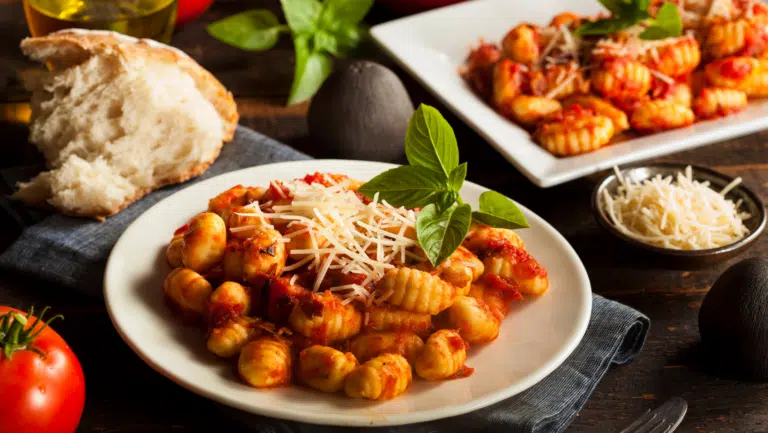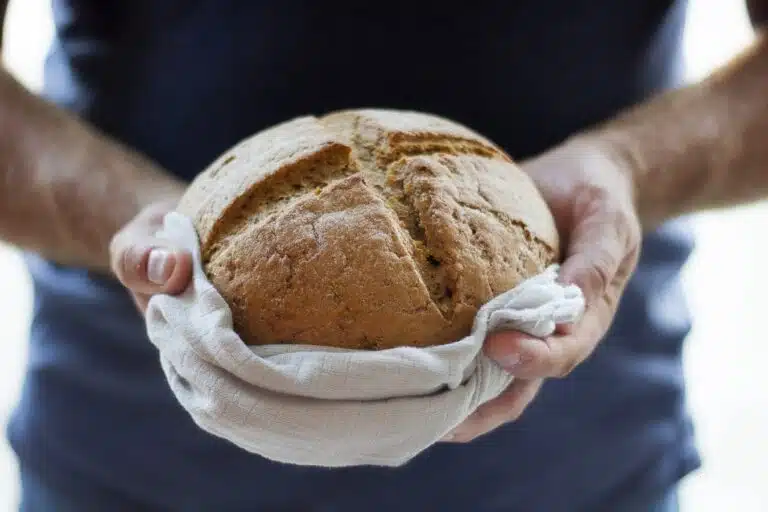
How to Gain Weight on a Low FODMAP Diet
How to Gain Weight on a Low FODMAP Diet
- filed under: All, FODMAPs & Food Intolerance, Health & Wellness
For some people a low FODMAP diet or another health condition, can lead to weight loss. If this is ongoing it can impact on mood, energy levels and immunity. There are also people who need a calorie dense diet to maintain high levels of activity e.g. sport or a physically demanding job. Combine either of these with IBS and you are left in the challenging position of needing increase calorie intake, while at the same time, limiting food choices and portion sizes to avoid setting off IBS symptoms.
Do you need to put on a few kilos or at least stop losing weight, but also want to keep your IBS symptoms at bay? If you answered YES, then keep reading:
1. Eat small and often.
Ideally every 2-3 hours. Keep calorie rich snacks handy for mid meal snacks. A small snack is better than nothing at all and can really add up over the day. Great options include:
- Low FODMAP nuts like brazils, walnuts, peanuts and macadamias.
- Peanut butter and banana on rice crackers.
- Smoothies made with suitable milk (full cream lactose free milk or soy protein milk contain are richer in calories, protein and calcium than other milk alternatives)
- Lactose or dairy free yoghurt with chopped nuts
- Cheese and rice crackers.
2. Include protein at all meals & snacks
Protein great for preserving and building lean muscle. The even better news is that many high protein foods are also low FODMAP. A strategy I often use is to ensure that all meals and snacks contain some form of protein. You might like to try:
- Low FODMAP nuts or nut paste like brazils, walnuts, peanuts and macadamias.
- Suitable dairy products like lactose free milk, yoghurt, ice cream or custard
- Cheese
- Soy protein milk, yoghurt or ice cream
- Tofu or tempeh
- Meat or chicken
- Fish
- Eggs
- Up to ¼ cup per serve chickpeas or butterbeans or ½ cup lentils (make sure to buy canned ones and drain and rinse them well)
3. Include healthy Fats
Fats & oils really carry a lot of bang for their portion size when it comes to weight gain. Comparably 5 grams of sugar contains around 20 calories while 5 grams of olive oil contains 45 calories. Like protein, oils are also often low in carbohydrates and therefore also low FODMAP. Adding healthy fats like olive to cooking, or sprinkling grated cheese, nuts or seeds over the top of a meal are all easy ways to really boost the calories in any meal.
4. Drink energy dense fluids:
Water, tea and instant coffee are virtually calorie free. So replacing, at least some of these, with more calorie dense options is recommended. Try making your coffee and tea (decaf may be better tolerated) on lactose-free full-cream milk or soy protein milk, or use these milks to make smoothies, milkshakes and low FODMAP hot chocolate.
5. Make every mouthful count.
Fortifying meals and snacks can add a lot of calories, without extra bulk. Add nutritious calorie dense ingredients, toppings and sauces to meals and snacks when preparing them and again at the table. Ideas you might like to try are:
- Low FODMAP nuts and seeds
- Grated cheese
- Low FODMAP sauces, dressings and mayonnaise
- Pesto with no onion or garlic (homemade if necessary).
- Coconut milk or cream (125ml serves of canned coconut milk is low fodmap).
- Cook with lactose free milk or soy protein milk instead of water.
Also try choosing higher calorie choices of similar food. For example:
- choose full fat lactose free dairy.
- If you don’t tolerate dairy at all, soy protein milk contains more calories, protein and calcium than other alternative milks.
- Swap some low calorie vegetables for starchy alternatives like potato or low FODMAP serves of sweet potato
Click the button below to download a High Energy & High Protein cheat sheet with suggestions to add calories with out adding bulk to your meals
If you’ve tried all of the above and are still struggling, our team of FODMAP trained dietitians are here to help with strategies and suggestions to keep your weight up and your tummy calm at the same time. Book an appointment here.
TAGS:
SHARE THIS POST

Meet Joanna
PASSIONATE IN DIGESTIVE HEALTH
grab your freebie
Week 1 - Low FODMAP Menu






4 Comments
But with suggestions my colesterol will increase, so my glicemia
Hi Angela, there are certainly things that we can do to counteract any these concerns at the same time. Thats where your dietitian can tweak things to your individual needs. Let us know if we can help
weight loss tips for a healthier you. Incorporate balanced meals, regular exercise weight loss and mindful eating. Stay hydrated, prioritize sleep, and set realistic goals for sustainable success.
This article is about gaining weight. I’m underweight and wasting away. Why are you writing about weight loss?